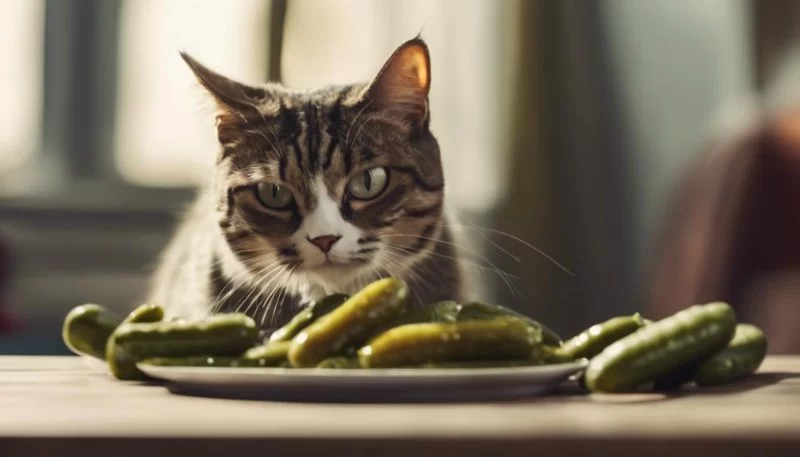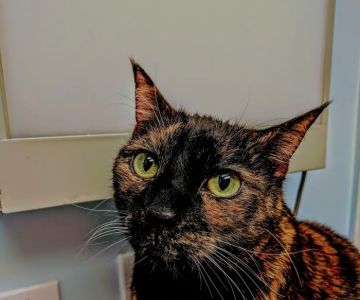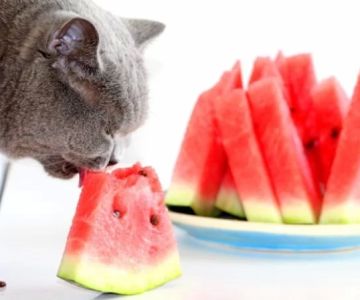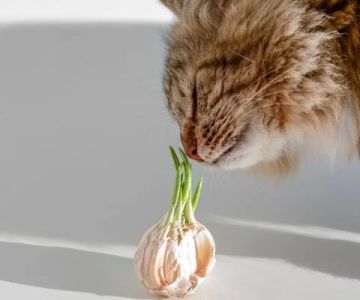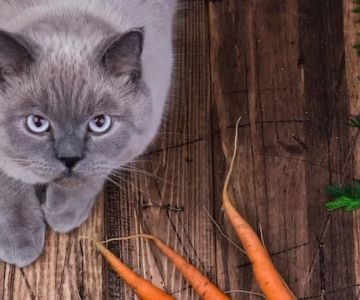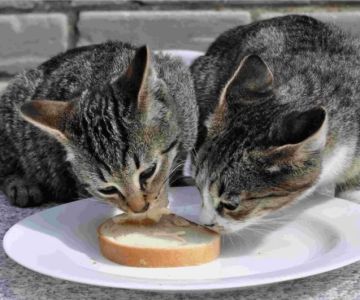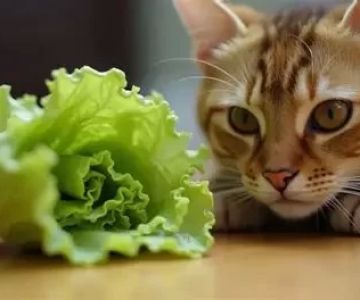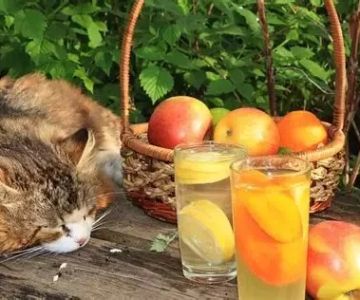Can Cats Eat Pickles?
- #Are-pickles-safe-for-cats-and-why-the-question-matters
- #Understanding-pickle-ingredients-and-their-impact-on-feline-health
- #Real-experiences-from-cat-owners-and-common-reactions
- #What-to-do-if-your-cat-ate-a-pickle-and-when-to-seek-help
- #How-Hidden-Brook-Veterinary-supports-informed-feline-nutrition
Are Pickles Safe for Cats and Why the Question Matters
Many cat owners eventually wonder, “Can cats eat pickles?” especially when their curious feline tries to sneak a bite during lunch. While pickles may seem harmless—after all, they’re just cucumbers soaked in brine—the truth is more complicated. Cats have very sensitive digestive systems, and the high sodium content, vinegar, and spices found in pickles make them far from an ideal snack.
For U.S. pet owners, the conversation around human foods has become more important than ever, as many households now treat their pets like family members. That means every snack, even a pickle slice, should be evaluated with care.
1. Why Sodium Levels Matter for Cats
Pickles contain extremely high amounts of salt. While humans can tolerate this, cats’ kidneys are far more delicate. High sodium intake can contribute to dehydration, vomiting, increased thirst, and—over time—kidney strain. This is particularly risky for older cats or those prone to chronic kidney conditions.
2. Vinegar and Acidity
The acidic brine used to create pickles can irritate a cat’s stomach. Cats are obligate carnivores and their systems are not designed to process acidic vegetables soaked in vinegar or fermented solutions.
3. Spices and Additives
Many pickles contain garlic, onion powder, dill spices, or other seasonings. Garlic and onion in any form—fresh, powdered, or dehydrated—are toxic to cats. Even small amounts over time can affect red blood cells and lead to anemia.
Understanding Pickle Ingredients and Their Impact on Feline Health
To fully understand the answer to “Can cats eat pickles?”, it helps to break down the common ingredients inside a pickle jar. Each component interacts differently with a cat’s digestive and metabolic system.
1. The Cucumber Itself
Plain cucumber is generally safe for cats in tiny amounts. It contains water and minimal calories. But once soaked in brine, it becomes an entirely different food.
2. Brine and Excessive Salt
The brining process is what transforms cucumbers into pickles. That brine is almost always too salty for cats, increasing the risk of dehydration or gastrointestinal upset.
3. Common Spices Found in Pickles
Some specialty pickles include chili, peppercorns, or sweetened blends—none of which are appropriate for feline diets. Even dill pickles, considered the mildest variety, still contain spices that offer no benefits to cats.
Real Experiences from Cat Owners and Common Reactions
Many curious cats have managed to sneak a lick from a pickle jar, especially when owners leave their food unattended. One U.S. pet owner shared online how her cat grabbed a small piece of pickle from a sandwich. Minutes later, the cat showed signs of excessive lip licking and clear discomfort—likely from the vinegar and salt.
Another case involved a young cat who bit into a spicy pickle spear at a family barbecue. Within an hour, the cat vomited and appeared restless. While the symptoms passed, the incident became a reminder that human foods rarely match a cat’s nutritional needs.
Interestingly, some cats show no symptoms after nibbling a tiny amount. But experts agree this doesn’t mean the behavior is safe—it simply means the cat got lucky.
What to Do If Your Cat Ate a Pickle and When to Seek Help
If your cat accidentally ate a pickle, the first step is to stay calm and observe. Most mild exposures result in temporary stomach upset. However, if the pickle contained garlic, onion, or spicy seasonings, closer monitoring is essential.
1. Watch for Digestive Symptoms
Signs like vomiting, diarrhea, or excessive thirst can appear within a few hours. Cats with sensitive stomachs may react more strongly than others.
2. Encourage Hydration
Provide fresh water to help dilute the sodium intake. Cats who consume salty foods may drink more than usual—this is a normal response.
3. When to Contact a Veterinarian
If your cat shows persistent vomiting, lethargy, pale gums, or any unusual behavior, professional help is recommended. This is especially important for senior cats or cats with known kidney issues.
How Hidden Brook Veterinary Supports Informed Feline Nutrition
Understanding “can cats eat pickles” is part of being a responsible pet parent. While pickles may seem like an innocent snack, their ingredients make them a poor match for feline diets.
For owners who want more guidance on safe snacks, hydration tips, or personalized dietary recommendations, Hidden Brook Veterinary provides reliable resources and professional insight. Their team helps pet owners navigate what’s truly safe for cats and how to support long-term health with appropriate nutritional choices.
By taking the time to learn which human foods are risky, you protect your cat’s well-being and deepen your bond with them—one thoughtful decision at a time.

